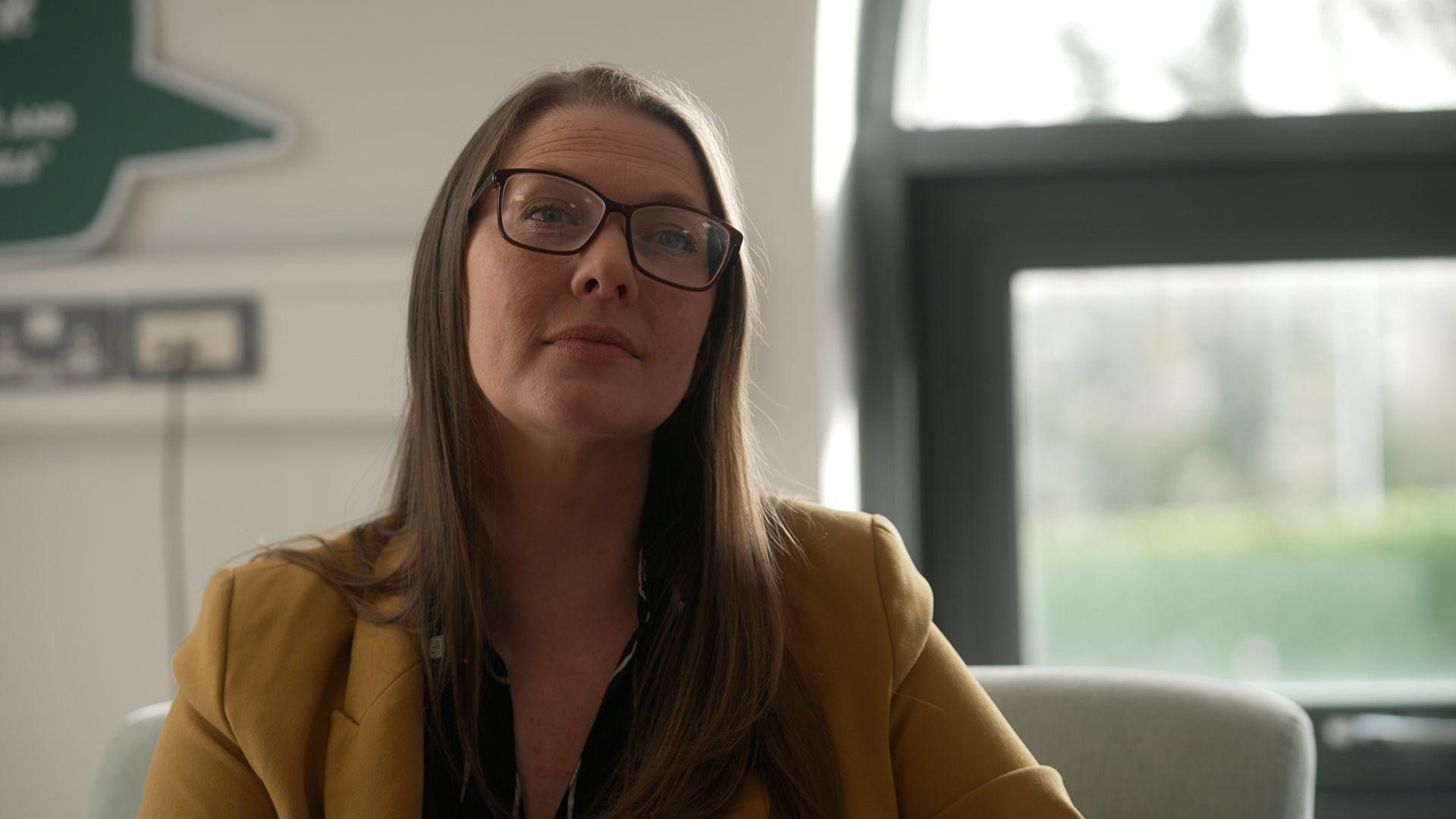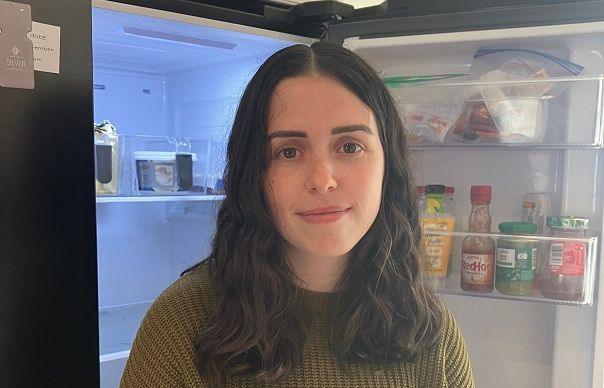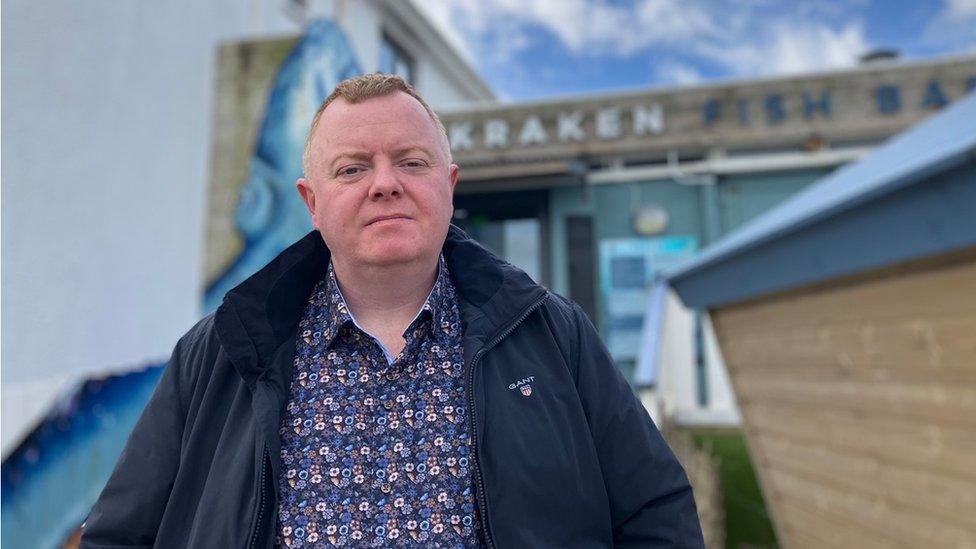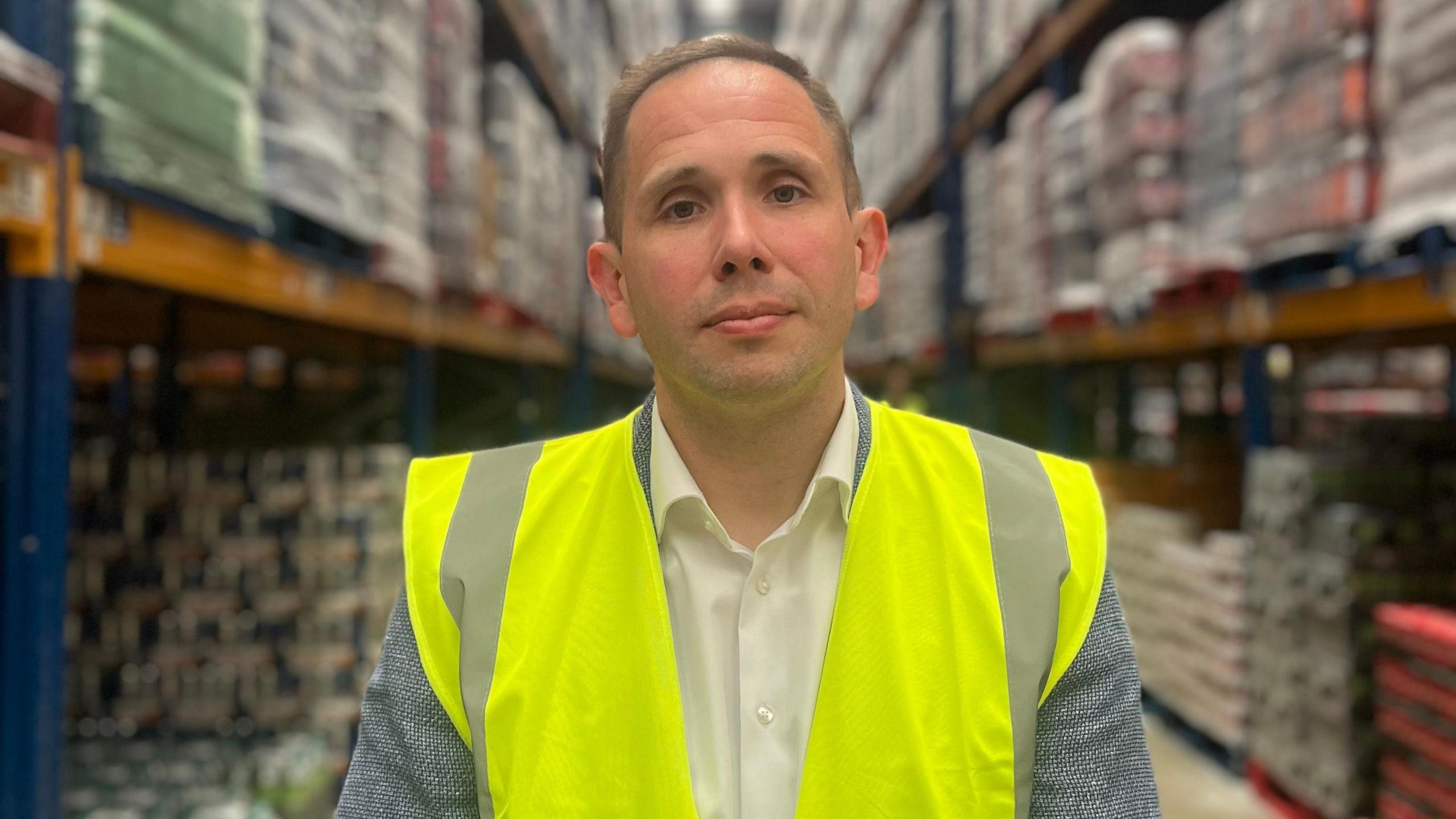Carer has to skip meals to ensure her daughter has enough food
Alicia Mehaffey in the warehouse of Foyle Network Foundation's food bank
- Published
A single mother has said that increased food costs have forced her to skip meals to ensure that there is enough to feed her daughter.
Alicia Mehaffey was speaking as new figures show the the UK inflation rate remains at 3.8% for third month in a row, well above the Bank of England's 2% target.
She told BBC News NI that although she is in employment and supported by a local food bank, there are times when she can't afford enough food to feed their two person household.
According to the latest figures, the cost of food has fallen slightly since August, but it is still higher than a year ago.
The Office for National Statistics figures, released on Wednesday, show the cost of food and non-alcoholic drinks dropped by 0.2% between August and September.
It is the first time the cost of food and non-alcoholic drinks has fallen since May 2024.
However the figures also show the inflation rate for food and non-alcoholic drinks was 4.5% for the year to September.
For the previous six months prices consistently increased, but much of the pressure comes from the longer term.
In the five years to July, food prices increased by around 37%. Put simply, £10 worth of food bought five years ago would now cost you £13.70.
As prices of everyday staples rise, ordinary households are struggling to cope.
'Everything is still going up, up, up'
Alicia Mehaffey, who is from Strabane in County Tyrone, works as a carer in the community.
"You can just see how empty people's cupboards are getting and how much they're struggling."
"It's a lot harder when you have a young child because they tend to want to have a snack and to want extra, and it's a lot harder explaining to a young child that there is none, or you can't have more because if you eat it all in one day there's going to be nothing left for the rest of the week."
Although she is in employment and receiving support from a local food bank, Alicia told BBC News NI that, at times, she has been forced to skip meals to ensure there is enough to feed her daughter.
"You do it in order to give them everything that they need. My daughter comes first, and if she needs to eat, I don't mind missing a meal so she has what she needs."
"Without Foyle food bank, I'd have a lot more trouble trying to afford everything on my own, and this makes it a little bit easier but it's still quite hard."

Fiona Cole, Trussell Trust's Policy and Public Affairs Manager for Northern Ireland
Food banks have become an indispensable resource for many as inflation drives prices ever higher.
The Trussell Trust, an anti-poverty charity, supports a number of food banks in Northern Ireland, including the one used by Alicia.
But the same food price inflation which is forcing more people to turn to food banks, is putting those resources under real pressure.
As people face rising food costs of their own, the number of items donated has decreased, forcing food banks to purchase more of their own food at today's higher prices.
Fiona Cole, the Trussell Trust's Policy and Public Affairs Manager for Northern Ireland, says "the struggle is there for everyone".
"Fundraising across the UK is going down as people continue to manage their own budgets.
"It's getting increasingly difficult to service the needs of people but we will always make sure that people who come in will not be left empty handed."
Trussell Trust figures indicate that one in three children in Northern Ireland live in food insecurity.
Ms Cole told the BBC that in her experience, Alicia's story of struggle to make ends meet as food inflation continues, was not an unusual one.
"Our most recent research showed that in 2024, 520,00 lived in food insecure houses - that means they've skipped meals, reduced sizes, or simply can't afford to buy more," she said.
What is inflation?
Inflation is the increase in the price of something over time.
A higher rate means prices are rising more quickly. A lower rate means prices are rising more slowly.
The UK inflation rate is based on the price of hundreds of everyday items including food and motor fuel as well as household bills such as gas and electricity.
- Published18 June

- Published18 April 2024

